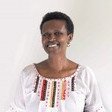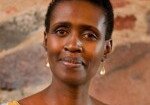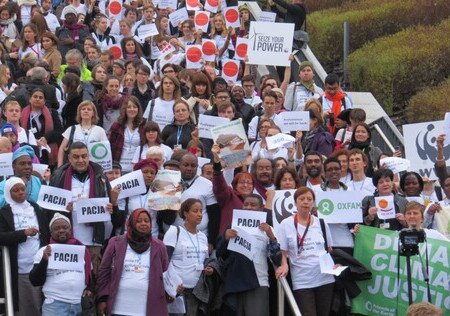Winnie Byanyima

Winnie Byanyima是國際樂施會總幹事。在婦女權利,民主治理和建設和平等方面的工作,她都具領導地位。
倡議工作2016年11月25日
文:Winnie Byanyima
她們說:「受夠了!」
我媽媽是一名社區領袖,她在我們的村裡莊帶領一個婦女小組,團結了村內的婦女,為自身及其女兒爭取權益,令我留下深刻印象。這些婦女大部分出身貧窮,她們在婦女小組中,了解到習以為常的「社會規範」如何剝削她們應有的權益,或遭暴力對待。
倡議工作2016年1月19日
Yet again I am attending the World Economic Forum in Davos, warning about the global inequality crisis – and proposing steps to tackle it. Yet again, Oxfam has released shocking new statistics which illustrate how severe this crisis has become: 62 people now have the same wealth as the poorest half of the planet – that’s 3.6 billion people.
I am not the only one raising the alarm: Consistently now, we hear concern on inequality from voices such as President Obama, the Pope, Christine Lagarde of the IMF, and people on the street. And things are starting to change. But not enough.
It’s not enough because the gap between the rich and poor has grown dramatically in the past 12 months. This time last year 80 people owned the same amount as the poorest half of the planet and Oxfam was predicting the wealth of richest one percent would overtake the rest of us by 2016 – this particular milestone was passed ahead of schedule in October.
The consequences of such rapidly growing and extreme inequality are huge. Economic inequality can act as brake on growth, slow poverty reduction efforts, and spark social unrest. Oxfam sees the devastating impact of extreme inequality in many of the countries where we work – from the school children of South Africa whose education is suffering because of lack of government funding, to the garment workers of Myanmar who work long exhausting hours for global suppliers but who can’t cover their rent and feed their families on what they earn.
倡議工作2015年11月30日
As I arrive in Paris, I will be remembering the faces of the women in the village where I grew up in Uganda. They rely on the land, herding cows, and growing crops – and they are amongst the 3.5 billion poorest people around the world whose daily lives are perilously exposed to changes in the climate.
Climate change is a fundamental environmental, economic, humanitarian and security threat to our world. It isn’t “another crisis” we can somehow chose to prioritize above or below others. Within Oxfam, we also see it as a crisis of inequality, where poor and vulnerable people – and especially the women of the South – are shouldering hugely disproportionate risks.
The UN climate talks in Paris next month will likely result in a global deal. The big question is what will the deal look like – and will it benefit the elites and the big emitters only, or the most vulnerable too?
I’m optimistic that humankind has the technical and political capabilities to run a cleaner, more stable and safer world, one that can deliver on the ambitious new Sustainable Development Goals. Countries can find the money, as they did $11 trillion to bail out the banks.
倡議工作2013年11月22日
By Winnie Byanyima – Executive Director at Oxfam International
Today, I led hundreds of people from around the world in a walk out of the 19th UN climate talks. Oxfam has been keenly involved in the talks for a long time, fighting to help stop climate change, and to support people affected by it, and every day the urgency for governments to help gets greater. But year after year, the talks have been mostly just going through the motions – with very little progress on reducing emissions, or on raising the $100bn governments have promised to support people affected by climate change by 2020.
We have campaigned passionately and powerfully. Yet the public’s shouts of urgency for governments to act seem to be falling on deaf ears. This year, the talks have reached new lows: The hosting Polish government has colluded with the coal industry to present “clean coal” as a solution to climate change (it isn’t a solution). Australia has attacked the very principle of climate finance. Japan has even pledged to increase – not reduce – their emissions!





